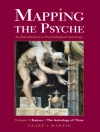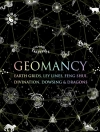For me, thinking about the me of tomorrow far predates the virus. It has become second nature, essential to creating a meaningful life. It’s my bread and butter. However, paradoxically, understanding how to plan in the age of coronavirus took on an even greater meaning.
Our sense of balance; thirst for knowledge; and approach to health, career, finances, and relationships required even more forethought and attention than ever before. Envisaging future tomorrows puts us in a better position to deal with today. At some point, we knew the planet’s current nightmare would end and an unpredictable “new normal” would emerge.
Having the mental discipline to envisage a different life and a different life stage makes us smarter, more adaptable, and more conscious of our choices every day. This book is all about decision-making; COVID-19 just made us consider our daily decisions with another unknown variable. It reinforced my belief that planning, both past and present, holds meaning and resonance in times of stress and greatest uncertainty, just as it does when life seems more normal. Unpredictability is part of life.
Efrain Rovira wanted nothing more than to be an engineer while growing up in Panama.
His rationale was simple: Engineers in Panama were paid well, and he wanted to live a secure, comfortable life. So, he started planning ahead.
The fact that his peers who also wanted to be engineers did not do the same floored him—and their diverging paths convinced him to make planning and visualizing a key part of life moving forward.
At so many junctures, he found himself thinking about not only the best choice for that moment but the long term. In this guide to planning for a better life, he reveals how to think and plan rigorously for the future, set yourself up for future happiness, and appreciate how thinking about tomorrow can influence every aspect of life.
The book helps readers navigate the complex web of work by showing how influence is more effective than title, what organizations value, and the critical attributes for career success. It also explores ways to promote financial and physical health.
Get a strategic long-term plan and work toward your dreams with the insights and lessons in The Me of Tomorrow.
เกี่ยวกับผู้แต่ง
Efrain Rovira is an individual with an insatiable intellectual curiosity. A native of Panama, he came to the US on a Walton Foundation Scholarship. After moving between Panama and the US a few times, he planted roots in Texas. Although he has spent most of his career in high tech and by traditional measures has been very successful, he is most proud of what he has accomplished as a father, husband, son, brother, and friend.
In business, he has led sales, marketing, strategy, channel, product management, and marketing communications at the executive level in Fortune 10 companies. He has also been the general manager of multibillion-dollar businesses globally and regionally.
Efrain enjoys developing plans about how to grow. For him, growth is about not just business growth but also personal growth. He has coached and mentored many successful executives and budding entrepreneurs. He offers advice beyond standard professional development and executive mentorship, helping people think about their careers in the broader context of their whole lives and their plans. Efrain loves to build mental models of all aspects of life – developing formulas for living better. He has captured many of these coaching ideas and models in The Me of Tomorrow, his first book.
Efrain’s ghostwriter, Nick Collins, helped put these ideas down on paper. Efrain and Nick have been friends and business associates for more than twenty years. Nick has pressure-tested many of Efrain’s ideas and challenged them with his blend of curiosity and skepticism, choosing to adopt many of them as life challenges along the way. Nick is an Anglo-American market strategist and researcher currently living near Oxford in England.












